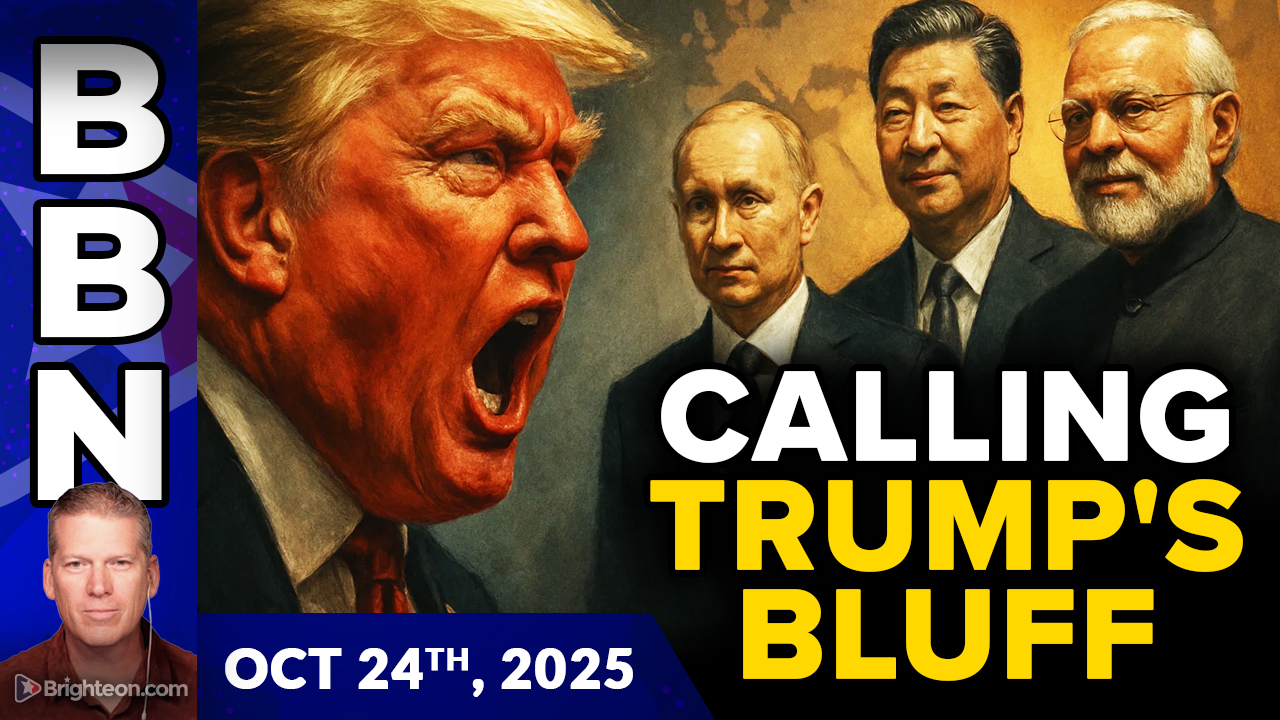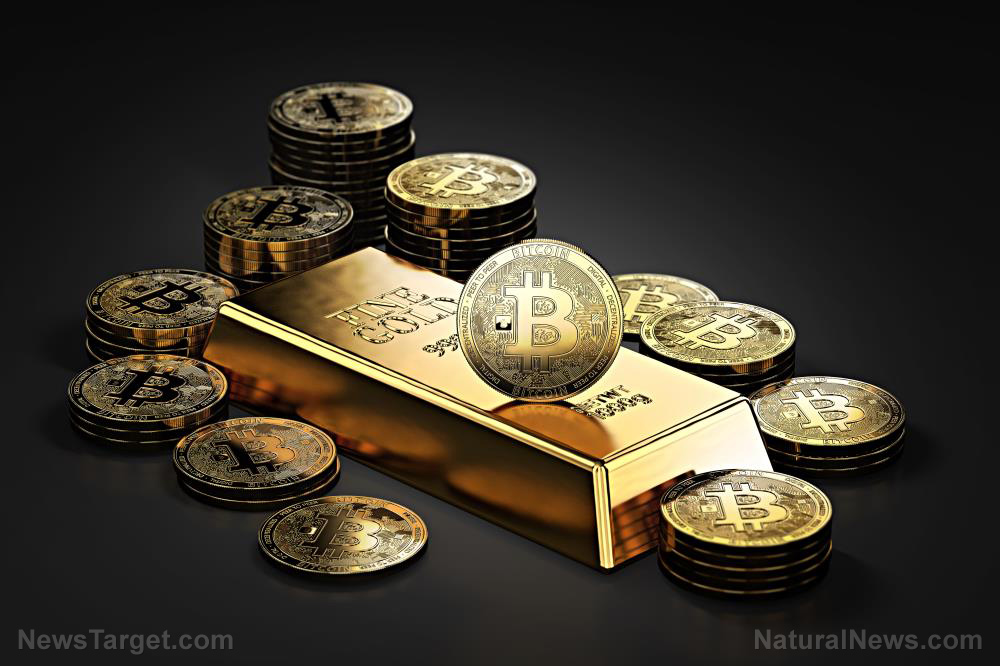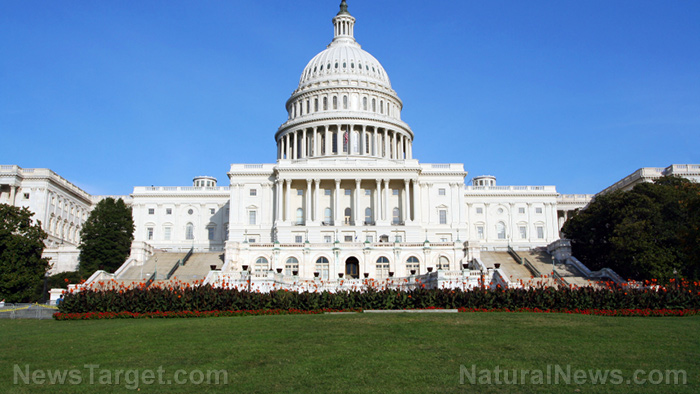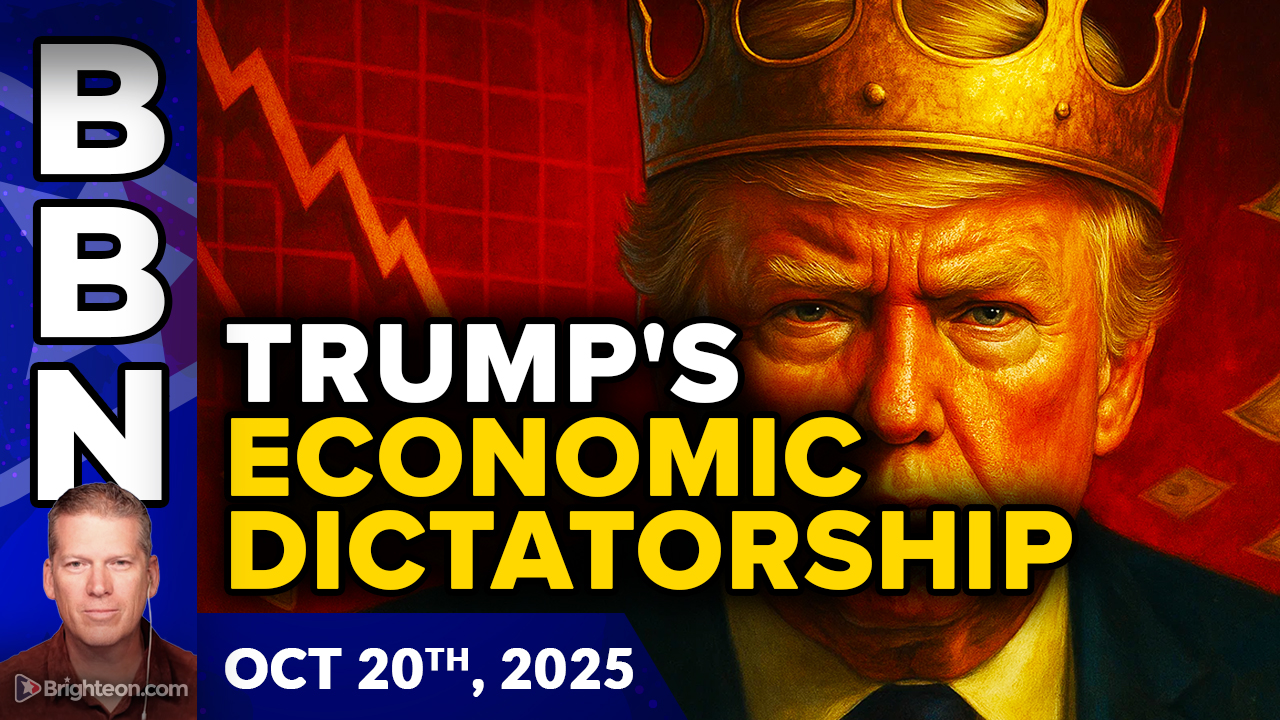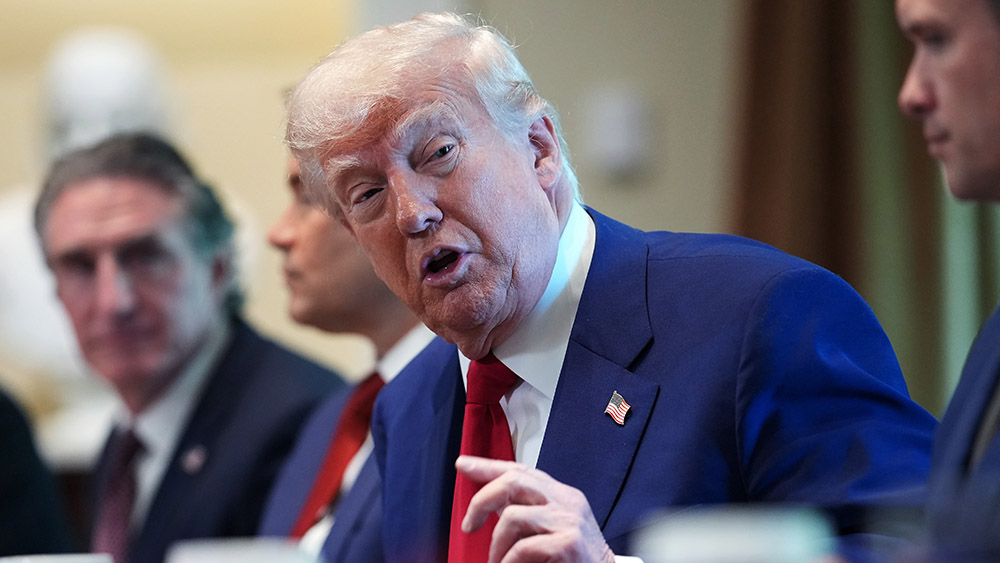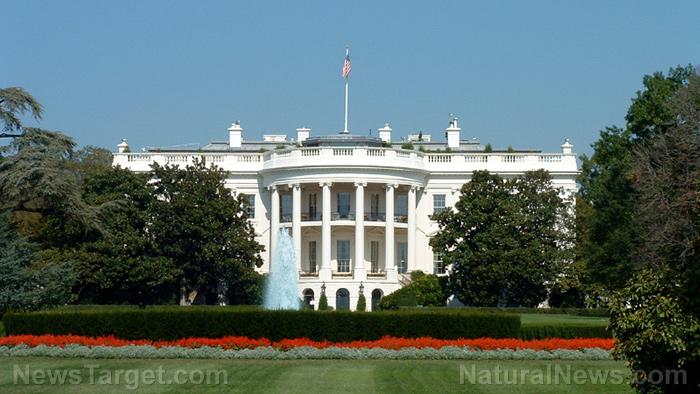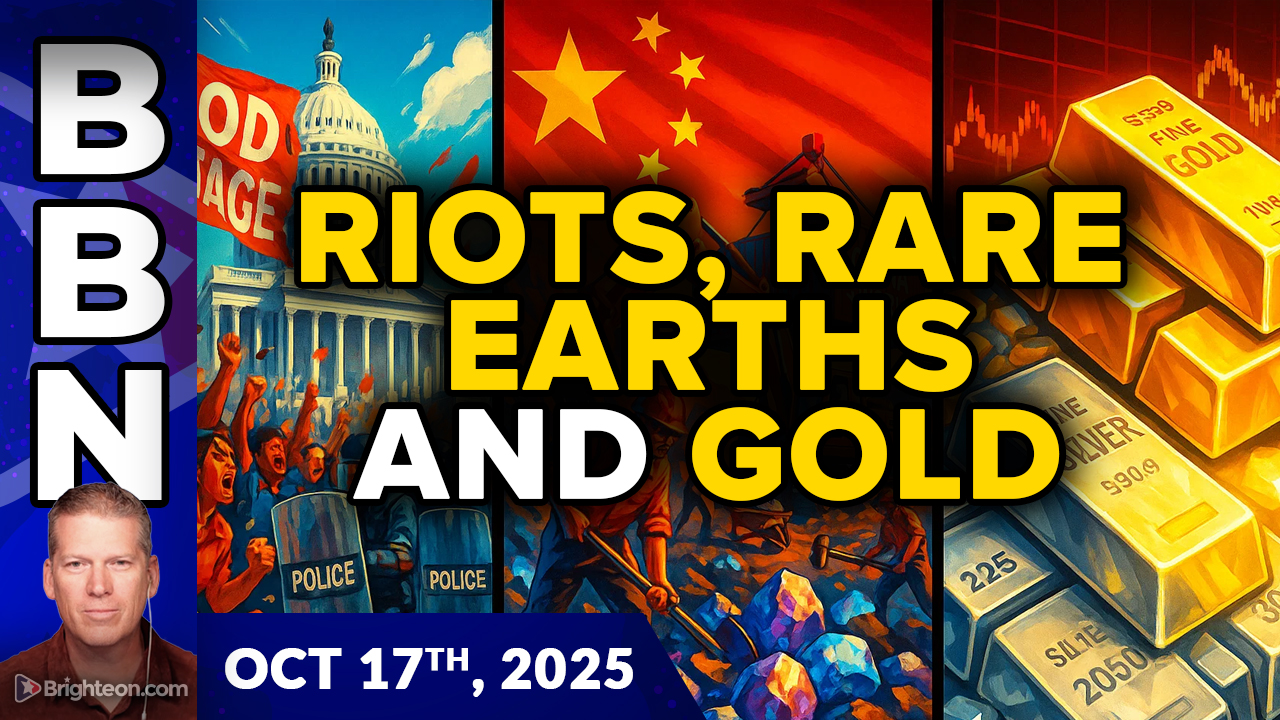Trump announces sweeping sanctions on Russian oil giants, demands ceasefire in Ukraine
10/23/2025 / By Kevin Hughes
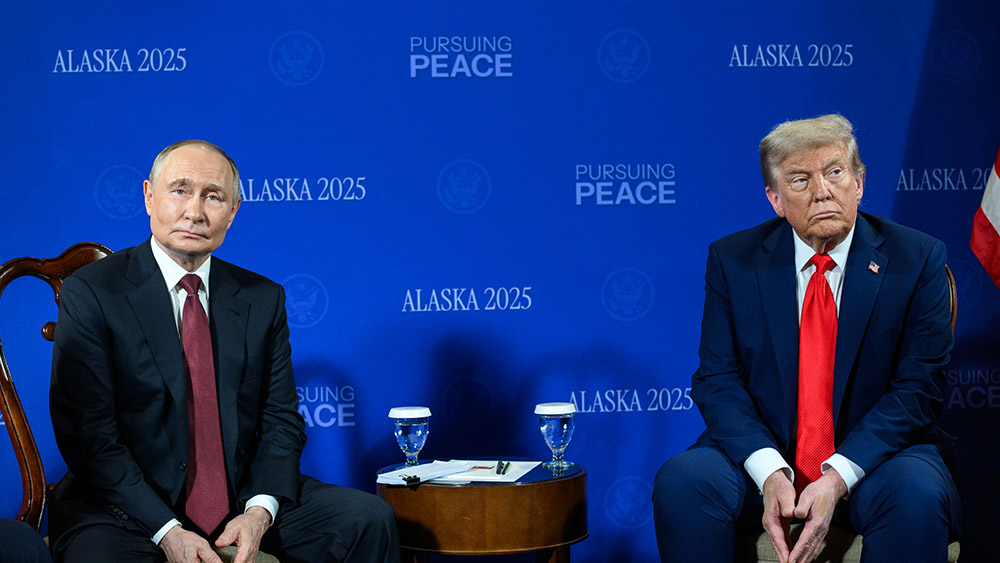
- President Donald Trump announced sweeping sanctions targeting Rosneft and Lukoil, Russia’s two largest oil companies, aiming to cripple Moscow’s economic lifeline in response to stalled peace negotiations over Ukraine.
- The sanctions follow Trump’s indefinite postponement of a planned summit with Russian President Vladimir Putin, citing frustration with Russia’s lack of progress in good-faith diplomacy. The U.S. and EU (including a phased LNG ban by 2027) are coordinating pressure, with the U.K. endorsing the move.
- Moscow condemned the sanctions, warning of disrupted global fuel supplies and harm to developing nations. Kremlin demands Ukrainian withdrawal from contested regions remain unchanged, despite Rosneft and Lukoil accounting for nearly half of Russia’s oil exports.
- While Ukraine praised the sanctions, Trump resisted providing long-range missiles (like Tomahawks) to avoid escalation. NATO backed the measures, but Trump hinted at lifting sanctions if Russia de-escalates—amid skepticism over their effectiveness given past failures.
- Energy prices spiked post-announcement, exacerbating inflation and shortages in Europe and the U.S. Trump’s dual approach—pressure paired with diplomatic openness—faces challenges as Russia refuses concessions and Ukraine rejects territorial cessions, leaving peace prospects uncertain.
In a significant escalation of economic pressure, President Donald Trump announced sweeping new sanctions targeting Russia’s two largest oil companies, Rosneft and Lukoil, citing Moscow’s failure to engage in good-faith peace negotiations over Ukraine.
The move comes just one day after Trump indefinitely postponed a planned summit with Russian President Vladimir Putin in Budapest, Hungary, signaling growing frustration with the Kremlin’s stalled diplomacy.
“Every time I speak to Vladimir, I have good conversations, and then they don’t go anywhere,” Trump told reporters in the Oval Office alongside NATO Secretary-General Mark Rutte. “I just felt it was time. We waited a long time.”
The sanctions, aim to cripple Russia’s energy sector—its economic lifeline—by restricting subsidiaries of Rosneft and Lukoil from operating in global markets.
Department of the Treasury Secretary Scott Bessent emphasized the urgency of halting the conflict, stating, “Now is the time to stop the killing and for an immediate ceasefire.” He warned that further measures could follow if Moscow refuses to de-escalate.
The sanctions package, one of the largest imposed on Russia since the conflict began in 2022, follows months of stalled negotiations. Trump had previously resisted such measures, hoping diplomacy would prevail. However, Bessent accused Putin of failing to negotiate “in an honest and forthright manner,” particularly after their August summit in Alaska yielded no progress.
The U.S. is not acting alone. The European Union (EU) simultaneously approved its 19th sanctions package, including a phased ban on Russian liquefied natural gas (LNG) imports by 2027 and restrictions on oil tankers circumventing existing embargoes. EU Commission President Ursula von der Leyen declared the measures “a clear signal from both sides of the Atlantic that we will keep up collective pressure on the aggressor.”
The U.K., which sanctioned Rosneft and Lukoil earlier this month, welcomed the U.S. move. Foreign Secretary Yvette Cooper called it “strongly welcome,” while Chancellor Rachel Reeves asserted, “There is no place for Russian oil on global markets.”
Russia’s defiant response
Moscow swiftly condemned the sanctions, warning of global economic fallout. Russia’s embassy in London claimed the measures would “disrupt global fuel supplies” and harm developing nations reliant on Russian energy exports. Kremlin spokesman Dmitry Peskov reiterated that Russia’s stance remains unchanged, demanding Ukrainian withdrawal from contested eastern regions.
BrightU.AI‘s Enoch notes that Russia’s response to U.S. and EU sanctions imposed following its invasion of Ukraine has been multifaceted, involving both economic and political measures. It has been characterized by a mix of economic countermeasures, strategic shifts and geopolitical maneuvers aimed at minimizing the impact of sanctions and maximizing its leverage in the international arena.
Rosneft and Lukoil collectively export 3.1 million barrels of oil daily—nearly half of Russia’s total production—making them critical to Moscow’s war finances. The sanctions aim to force Putin’s hand by choking off revenue, but analysts question whether they will succeed where previous measures failed.
Trump’s decision to scrap the Budapest summit underscores deepening mistrust. Ukrainian President Volodymyr Zelensky, who has repeatedly urged Western allies for long-range missiles, praised the sanctions through Ukraine’s ambassador to the U.S., stating that “peace can only be achieved through strength.” However, Trump has resisted supplying Tomahawk missiles, fearing further escalation.
Meanwhile, NATO’s Rutte endorsed the sanctions, calling them necessary to “put more pressure” on Putin. Yet, Trump hinted at flexibility, saying he hoped the sanctions could be “swiftly withdrawn” if Russia agrees to halt hostilities.
The sanctions arrive amid rising global economic instability. Energy prices surged in after-hours trading, with Brent crude climbing over one percent. European nations already grappling with shortages face further strain, while U.S. consumers contend with inflation-driven price hikes.
Trump’s strategy—balancing pressure with diplomatic overtures—reflects his broader goal: to end the violence. Yet, with Russia refusing to concede and Ukraine unwilling to cede territory, the path to peace remains fraught.
As the conflict drags on, the world watches whether economic warfare can achieve what diplomacy has not—or if further escalation looms.
Watch the video below about Trump calling talks with Putin “BS” and threatening more sanctions on Russia.
This video is from the Cynthia’s Pursuit of Truth channel on Brighteon.com.
Sources include:
Submit a correction >>
Tagged Under:
big government, European Union, Kremlin, LNG, Mark Rutte, military tech, Moscow, NATO, new energy report, Rosneft, Russia, Scott Bessent, Trump, tyranny, Ursula von der Leyen, Vladimir Putin, weapons tech, WWIII
This article may contain statements that reflect the opinion of the author
RECENT NEWS & ARTICLES
COPYRIGHT © 2020 Debtbomb.news
All content posted on this site is protected under Free Speech. Debtbomb.news is not responsible for content written by contributing authors. The information on this site is provided for educational and entertainment purposes only. It is not intended as a substitute for professional advice of any kind. Debtbomb.news assumes no responsibility for the use or misuse of this material. All trademarks, registered trademarks and service marks mentioned on this site are the property of their respective owners.


